Hiring in Indonesia is now undergoing rapid transformation. With companies scaling up, employee mobility is growing, and with rising regulations, HR teams find themselves hard-pressed to deliver smooth and compliant experiences onboarding. Employers are now confronted with the hurdle of complying with national requisites such as contributions to BPJS Ketenagakerjaan and BPJS Kesehatan, withholdings of payroll tax PPh 21, and regulations cited within the Manpower Law (UU Ketenagakerjaan), while attempting to give employees a warm welcome and engagement from their very first day.
Manual processes for onboarding cannot meet today’s needs. Thus, in 2025 and beyond, an HR onboarding system is remaining at the core, helping Indonesian businesses maintain compliance and heightening the efficiency needed in the race for hot talent.
Table of Contents
- What is HR Onboarding Software?
- Why Onboarding Software Matters for Indonesian Businesses
- Addressing Indonesia’s Unique HR Compliance Needs
- Challenges Faced by Indonesian SMEs and Corporates
- Key Features to Look for in HR Onboarding Software (Indonesia Edition)
- Top HR Onboarding Software for Indonesia in 2025
- Comparing Solutions – Feature & Pricing Matrix
- How to Choose the Right Onboarding Tool for Your Business
- Implementation Best Practices for Indonesian HR Teams
- Future Trends in HR Onboarding for Indonesia (2025 and Beyond)
- Conclusion
- FAQs
What is HR Onboarding Software?
HR onboarding software is a digital solution that walks new hires through every step of joining a company. Instead of having scattered spreadsheets and manual document collections, the platform brings everything under one roof. E-KTP and NPWP documents are managed, and payroll tax forms are automatically generated by the software. Task assignment and digital signing are made easy with the help of the onboarding software, smoothing the path for both employers and employees alike.
For HR teams in Indonesia, the value lies mostly in the amalgamation of compliance and experience. The software will help reduce the risk of overlooking key requirements while making the new employee assimilate faster into the corporate culture, thereby cementing a more positive and structured first impression of the workplace.

Why Onboarding Software Matters for Indonesian Businesses
Beyond the paperwork, onboarding sets the tone for an employee’s entire journey with the organization. Yet a process well-structured improves retention, simply because an employee who feels guided and supported is more likely to retain. Onboarding also assists in speedier productivity, as new hires are lent tools, training, and teams without delay.
In the eyes of the Indonesian employer, compliance represents the most important advantage. An ever-changing tax environment, mandatory BPJS registration, and strict labor rules are great potential lands for human errors by manual onboarding. Software lets the gaps disappear by embedding compliance into the workflow. This maintains employer branding at the same time, showing candidates from day one that their respective company respects efficiency, professionalism, and employee experience.
Addressing Indonesia’s Unique HR Compliance Needs
Indonesia’s compliance system makes onboarding especially challenging. There is a need for employers to enroll new employees in BPJS programs in a timely manner, compute PPh 21 tax withholdings correctly, and report information when hiring foreign workers. On top of that, the confidentiality nature of documents such as e-KTP and family cards necessitates data processing in line with privacy requirements.
Onboarding software intended for the Indonesian market is cognizant of these responsibilities. It gets employees enrolled into BPJS programs automatically, keeps payroll systems current in accordance with the latest PPh 21 updates, and weaves checks for labor regulations into the fold. Practically, this results in HR teams having less time to go over requirements twice and more time to spend on strategic employee engagement.
Challenges Faced by Indonesian SMEs and Corporates
The onboarding difficulties experienced by Indonesian firms tend to be size-related. Small and medium-sized enterprises tend to seek solutions that are easy, inexpensive, and adaptable enough to expand as they do. For these firms, digitizing processes without substantial investments is usually a top priority.
Big business, however, is concerned with scale and complexity. They need systems that can integrate with current HRIS and accounting infrastructure, verify employee details against government databases like e-KTP, and manage different compliance scenarios for both local and foreign employees. For them, onboarding software is not merely about efficiency but about combining several systems while ensuring complete compliance.
Key Features to Look for in HR Onboarding Software (Indonesia Edition)
When selecting HR onboarding software in Indonesia, one should not just consider common features but also characteristics that cater to local compliance, culture, and technology trends. A good platform must not only lead new employees through forms and checklists but also facilitate seamless integration with local systems such as e-KTP and BPJS, accurately calculate payroll and tax, and allow access in Bahasa Indonesia. Meanwhile, with Indonesia’s labor force ever more mobile and hybrid, onboarding products need to be available on smartphones and allow self-service to minimize HR’s administrative workload.
Localization and Language Support
For Indonesian staff, the onboarding process begins with acquaintance. A Bahasa Indonesia UI keeps the software user-friendly, while localized workflows guarantee that needed papers like e-KTP, NPWP, and family cards can be uploaded and validated effortlessly. This localization even includes intra-office communications: reminders for tasks, training announcements, and welcome greetings should be presented in a language staff interact with on a daily basis, cutting friction when a new employee’s first days are underway.
Payroll, Tax & BPJS Integration
Indonesia’s payroll environment is particularly complex, particularly with the changing regulations surrounding PPh 21 tax and obligatory BPJS membership. Onboarding software needs to be able to automatically compute payroll deductions according to typical Indonesian formulas, enroll the employee in BPJS Kesehatan and BPJS Ketenagakerjaan, and data sync with payroll systems in real time. That level of automation keeps everything compliant while avoiding mistakes that come with HR teams doing everything manually on spreadsheets.
Mobile & Hybrid Work Accessibility
Indonesia boasts one of the region’s highest percentages of mobile internet penetration. For many workers, particularly in rural areas away from large cities, the smartphone is the main working tool. Onboarding systems thus need to be mobile-first, providing mobile apps or portals accessible on the mobile web where new employees can fill out forms, upload attachments, and participate in orientation sessions remotely. With hybrid and remote working becoming more prevalent, this mobile accessibility has become essential, allowing companies to onboard employees anywhere in the world.
Data Security & Integration
Onboarding entails sensitive personal information—national ID numbers, addresses, tax identification, and banking details. Securing it is paramount. The software needs to align with Indonesia’s data protection regulations while providing secure document storage and encryption. Meanwhile, it should be able to integrate with installed HRIS, accounting software, and government portals so that HR teams are not dealing with isolated systems but an integrated workflow.

Top HR Onboarding Software for Indonesia in 2025
With the Indonesian HR technology market accelerating in maturity, a number of platforms today support both local compliance needs and contemporary employee experience expectations. Companies can select between local providers that comprehend BPJS and payroll specifics, regional solutions with accounting connections, and global platforms that introduce scalable onboarding processes optimized for Indonesia. Some of the leading solutions dominating the market in 2025 are listed below.
Asanify
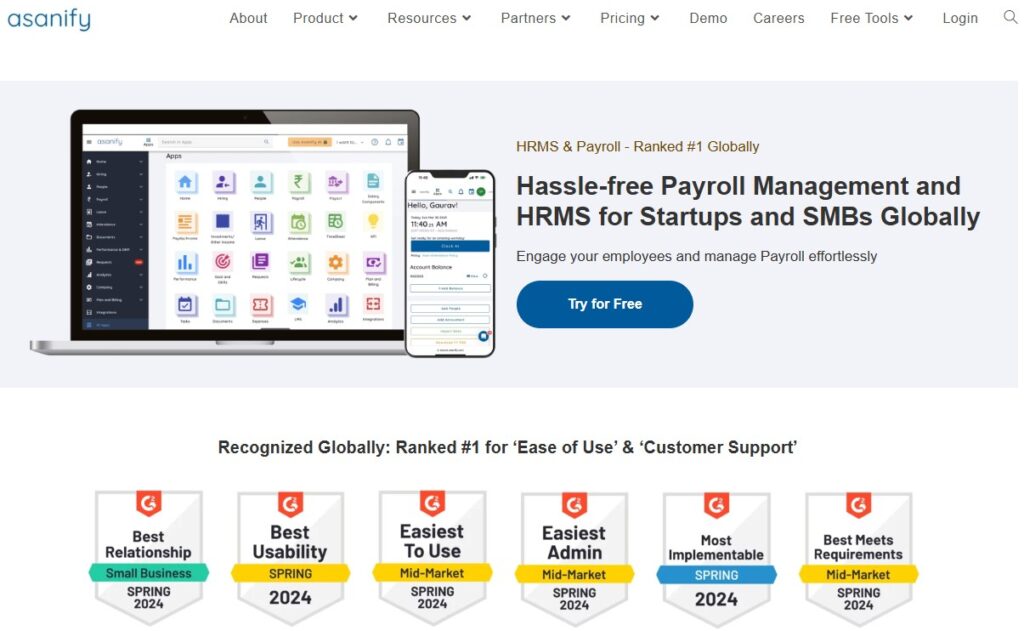
Asanify has become a go-to partner for Indonesian companies looking for localized and scalable onboarding.
Personalized Onboarding Flows for Every Hire
Each organization is unique, and so is each employee. Asanify enables HR teams to craft onboarding flows by role, department, or seniority level. New hires can be taken through only the steps applicable to them—be it uploading tax records, filling out compliance forms, or participating in team-specific training.
End-to-End Automation with Built-In Local Compliance
Compliance is embedded in the platform’s core. BPJS enrollment, PPh 21 calculations, and all required documentation are automated by Asanify. Directly integrated into payroll and HRIS, HR departments no longer have to double-check every compliance point.
Why Indonesian Businesses Trust Asanify
What distinguishes Asanify is how it integrates compliance with the employee experience. From localized workflows to employer of record (EOR) services to global hiring, the platform accommodates both SMEs and large corporates. Companies rely on it not just to minimize compliance risks but also to provide a modern, friendly onboarding experience to their employees.
Talenta (by Mekari)
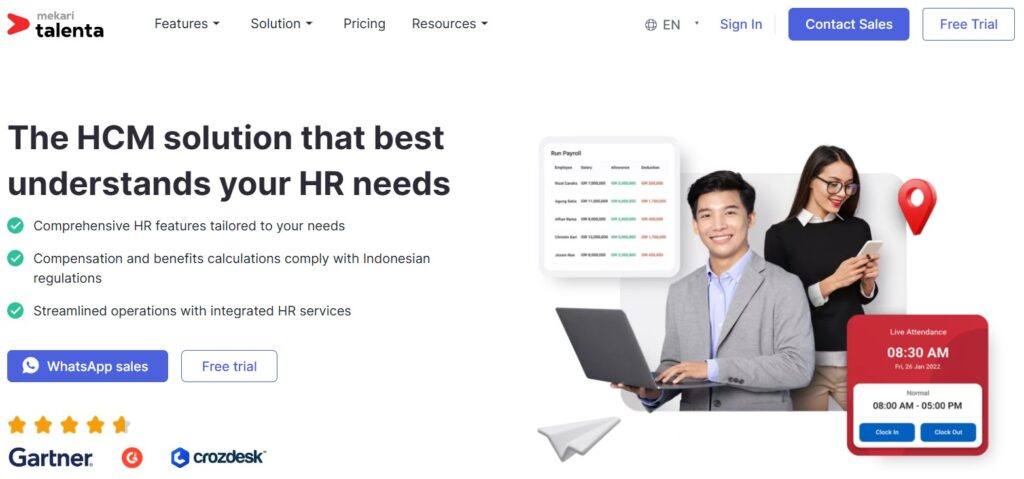
A household name in Indonesia’s HR tech space, Talenta offers robust payroll and onboarding features. Its strength lies in ready-to-use templates for onboarding tasks, digital document management, and strong compliance coverage for Indonesian laws. With Mekari’s ecosystem, businesses also benefit from integrations with accounting, tax, and employee management tools.
Sleekr
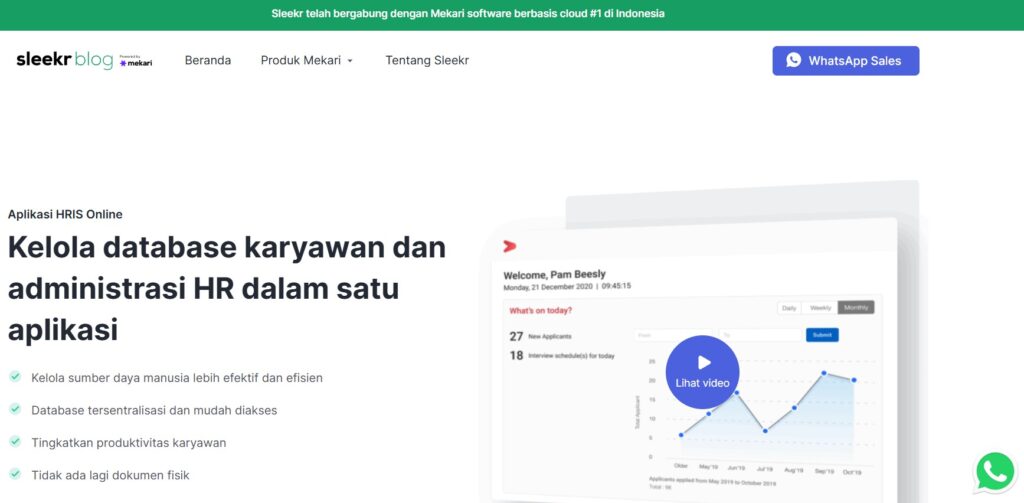
Focusing on small and medium-sized enterprises, Sleekr offers a cost-effective HR solution that encompasses fundamental features such as onboarding, payroll, and leave management. Because it has a modular nature, expanding businesses can implement features as they grow, offering cost savings without forgoing compliance.
BINARI or Jurnal People
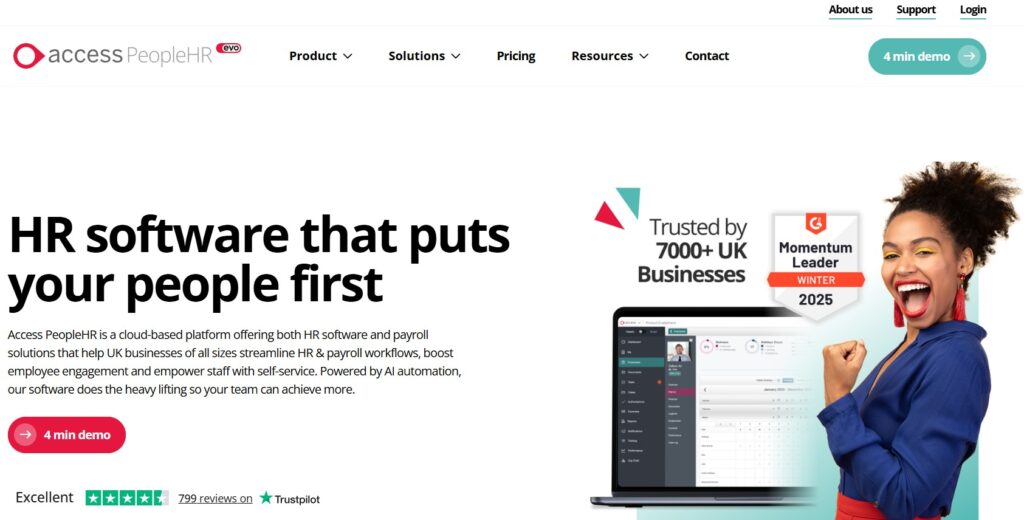
For companies that are already utilizing Jurnal accounting software, Jurnal People (previously BINARI) provides an organic entry into HR and onboarding. The solution integrates employee data with financial systems, which makes it well-suited for SMEs looking for a single back-office solution without having to deal with multiple vendors.
KaryaOne
KaryaOne is aimed at SMEs with a complete HR system that encompasses onboarding, payroll, and performance monitoring. Its value proposition is to provide practical solutions for the first-time digitizers of HR, enabling them to transition away from paper-based onboarding without unreasonable complexity.
GreatDay HR
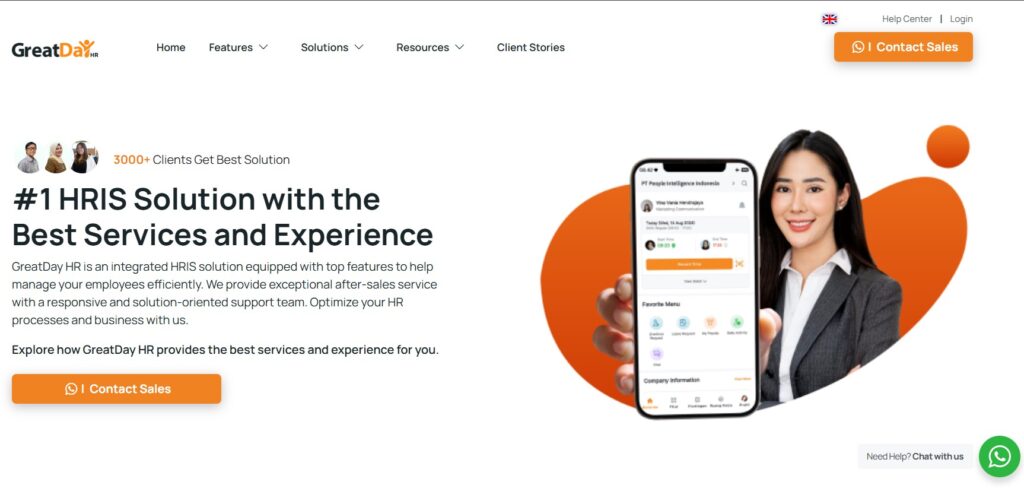
GreatDay HR is a mobile-first solution that is perfectly suited to Indonesia’s highly mobile workforce. Employees can scan documents from their phones, complete onboarding activities, and communicate with HR in real-time. For organizations with remote teams, this accessibility reduces onboarding delays dramatically.
Zoho People
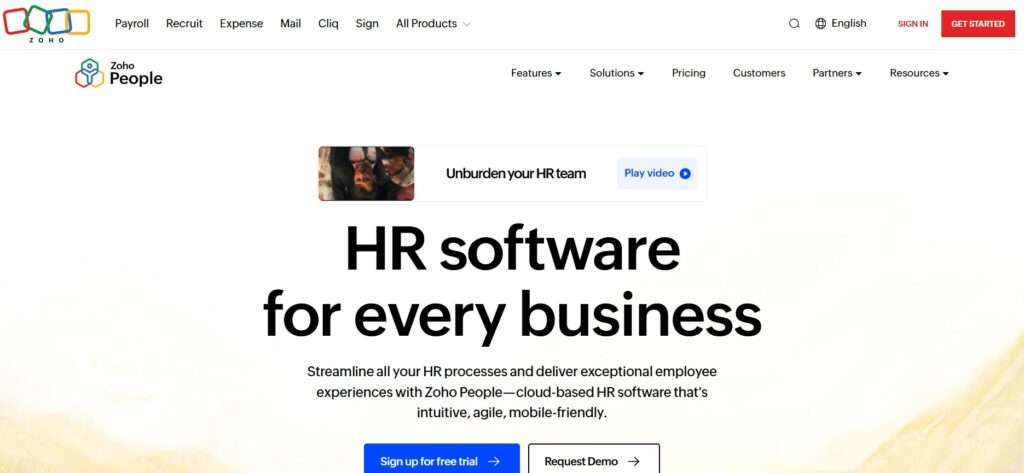
Zoho People delivers worldwide reliability coupled with local flexibility. The platform has onboarding workflows that can be customized as well as document collection based on Indonesian compliances. With businesses that are spread across several nations, Zoho keeps international HR standards blended with domestic compliances.
Freshteam by Freshworks
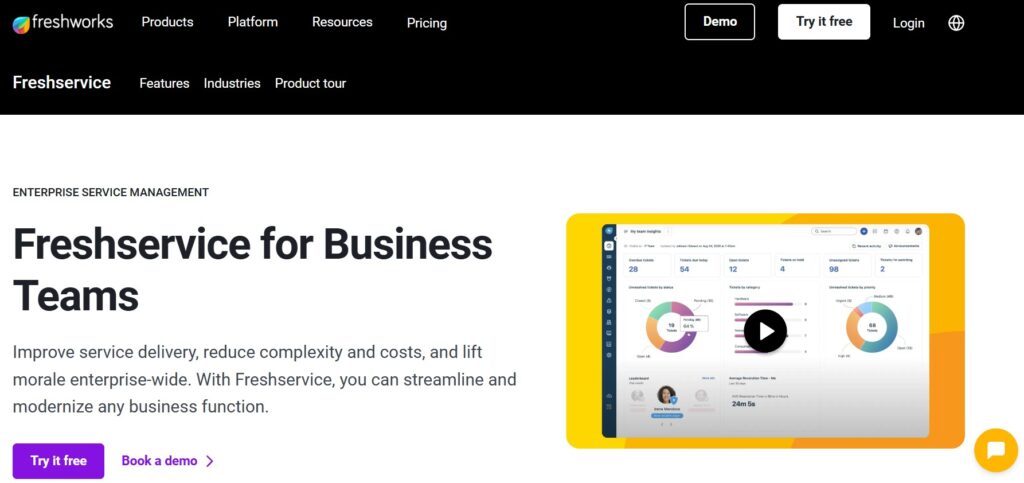
Freshteam is built for high-growing companies that must quickly scale their hiring. It integrates applicant tracking with onboarding to make sure, once hired, the candidate’s way into the firm is smooth. Its ease of use and intuitive design mean it is especially appealing to startups and SMEs growing in haste.
Comparing Solutions – Feature & Pricing Matrix
While each onboarding software has its strengths, businesses often need a quick way to compare features, pricing, and localization depth. Below is a simplified matrix showing how leading solutions in Indonesia stack up.
| Platform | Pricing (approx.) | Best For | Localization Depth (BPJS, PPh 21) | Mobile Access | Implementation Complexity |
| Asanify | Mid-range, flexible plans | SMEs & Enterprises | High – BPJS, PPh 21, local docs | Yes (mobile-first) | Moderate (localized training) |
| Talenta | Mid-to-high, subscription | Medium to large firms | High – payroll, tax, BPJS | Yes | Moderate to high (ecosystem setup) |
| Sleekr | Affordable, modular | Startups & SMEs | Medium – payroll, basic compliance | Yes | Low (easy adoption) |
| Jurnal People | Mid-range | SMEs using Jurnal | Medium – payroll + accounting link | Yes | Moderate |
| KaryaOne | Affordable | SMEs digitizing HR | Medium – payroll + BPJS | Yes | Low |
| GreatDay HR | Mid-range, per-user | Distributed teams | Medium – task/document onboarding | Yes (strong app) | Low to moderate |
| Zoho People | Mid-range, global pricing | Global SMEs/Enterprises | Medium – customizable workflows | Yes | Moderate |
| Freshteam | Affordable to mid-range | Fast-growing startups | Low-medium – document workflows | Yes | Low |
How to Choose the Right Onboarding Tool for Your Business
Choosing the appropriate onboarding solution in Indonesia involves more than reading through lists of features. Companies should begin by gauging their size, a small business seeking affordability and rapid deployment might lean towards Sleekr or KaryaOne, whereas an enterprise juggling payroll sophistication, BPJS, and tax automation might prefer Asanify or Talenta.
Compliance requirements should be top of mind. If your business is having trouble with registration for BPJS or constant PPh 21 tax releases, select software with compliance functionality built in. Budget, of course, does come into play, but balance it against deployment time and long-term integration value. Lastly, vendor support within Indonesia is critical. Seek out vendors with Bahasa-language training, local support staffs that respond quickly, and established track records with Indonesian businesses.

Implementation Best Practices for Indonesian HR Teams
Deploying onboarding software is as much an exercise in people as it is technology. Getting stakeholder support upfront will make adoption smoother, especially when the leadership is aware of how the platform minimizes compliance risk and accelerates productivity.
Training would be done using Bahasa Indonesia so that all HR personnel and managers are able to use the system confidently. Compliance workflows like BPJS registration, PPh 21 calculation, and overseas hiring reporting must be mapped clearly on the platform prior to launching.
A pilot program, preferably with a small number of remote hires, identifies gaps prior to company-wide implementation. Success measurement is also key. HR departments need to monitor metrics such as time-to-productivity, employee satisfaction during onboarding, and first-six-month retention. Not only do these metrics prove ROI, but they also support ongoing improvement.
Future Trends in HR Onboarding for Indonesia (2025 and Beyond)
Indonesian onboarding is on the cusp of quick transformation. Artificial intelligence will play a larger role in leading employees through tailored onboarding experiences, with less HR interaction. Mobile-led onboarding will be prevalent, as employees increasingly use smartphones as their primary work tool.
Government API integration, such as e-KTP verification and BPJS enrollment, is anticipated to further simplify compliance, even to the point of instant onboarding. As the gig economy continues to expand, software will also have to support contract and project-based labor with flexible onboarding processes.
Suggested Read: Best Payroll Compliance Software in India for 2025
Conclusion
Onboarding is no longer merely an administrative ritual but a strategic imperative for Indonesian companies in 2025. With increasing volumes of hires, stringent compliance needs, and hybrid work, organizations cannot afford manual processes. Cutting-edge HR onboarding software specific to Indonesia fills this gap by unifying compliance with efficiency and a frictionless employee experience.
Providers such as Asanify, Talenta, and Sleekr provide various strengths, ranging from localized compliance automation to mobile-first onboarding and SME-friendly affordability. The most important thing is to assess your company needs, shortlist prospective vendors, ask for demos, and compare features with compliance requirements and growth plans.
FAQs
Note average price ranges for SMBs vs enterprises (monthly fees, setup costs), mention free trials or modular pricing.
Confirm yes—citing platforms that automate BPJS enrollment and PPh 21 calculations.
Answer yes—emphasize the importance of Bahasa UI for user adoption in local teams.
Provide typical timelines—SMBs may onboard in a few weeks; enterprises may take 2–3 months including configuration.
State that key players offer mobile or mobile‑friendly portals to support hybrid onboarding.
Explain flexibility—whether tool supports customizable flows, contract templates for varied employment types.
Describe features like digital document capture or portal integration simplifying collection of key docs.
List Talenta, Sleekr, Mekari focusing on SMB ease-of-use and affordability.
Point out vendors offering local support, onboarding assistance, and Bahasa-speaking customer service.
Suggest metrics—reduction in onboarding time, faster productivity, lower turnover, fewer compliance penalties.
Not to be considered as tax, legal, financial or HR advice. Regulations change over time so please consult a lawyer, accountant or Labour Law expert for specific guidance.



